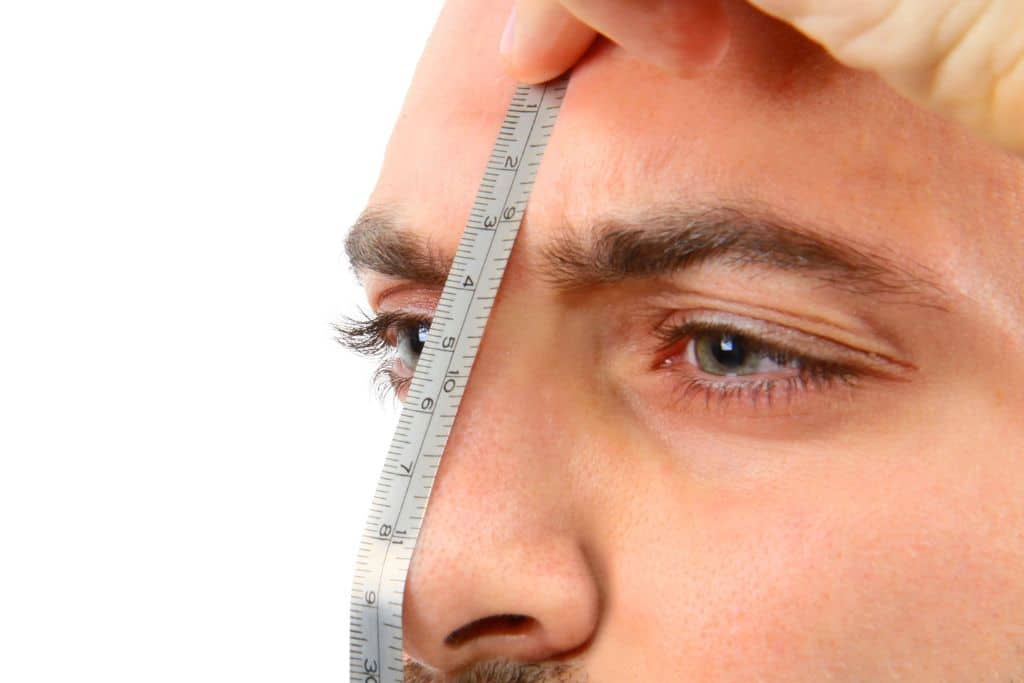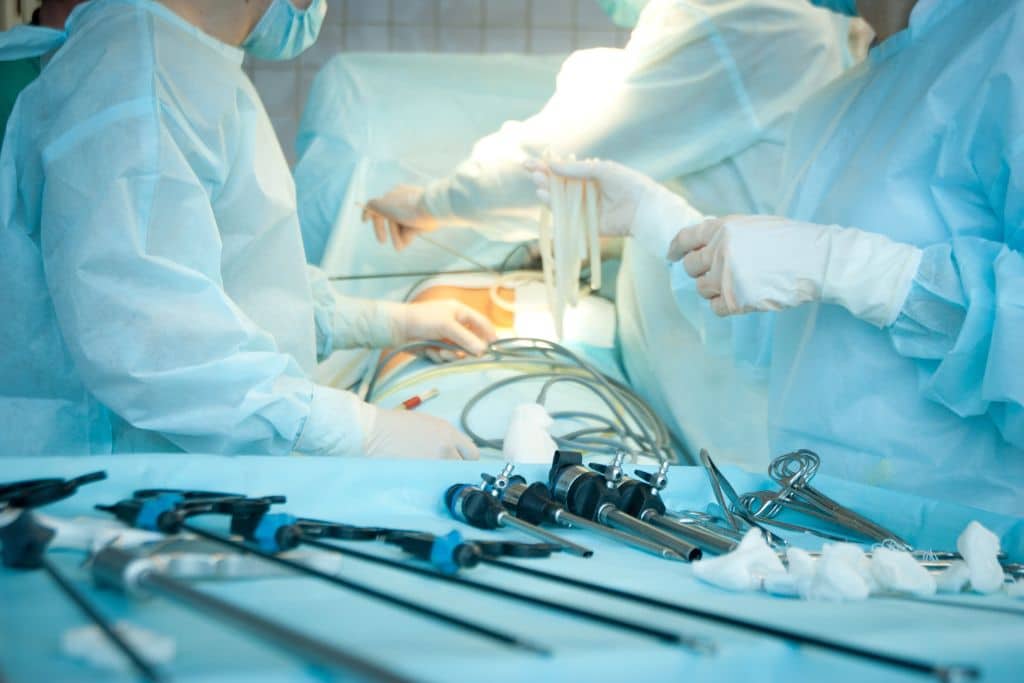Weight loss and breast reduction are two topics that are often intertwined. For many women, excess weight can lead to larger breasts, which in turn can cause discomfort, pain, and even health problems. While weight loss can sometimes reduce breast size, it is not always the solution. In some cases, breast reduction surgery may be necessary to alleviate symptoms and improve quality of life.
Weight loss is a common goal for many people, whether it is for health reasons or aesthetic purposes. However, losing weight can be a challenging and complex process, and it is important to approach it in a safe and sustainable way. Crash diets and extreme measures may lead to short-term results, but they can also have negative effects on health and wellbeing. A balanced diet, regular exercise, and healthy lifestyle habits are key to achieving and maintaining a healthy weight.
Breast reduction surgery, on the other hand, is a surgical procedure that involves removing excess breast tissue and reshaping the breasts to a more proportionate size. It is often recommended for women who experience chronic pain, discomfort, or other symptoms due to large breasts. While breast reduction surgery can be a life-changing procedure for some women, it is important to understand the risks and benefits before making a decision. Consulting with a qualified plastic surgeon and discussing individual goals and concerns is crucial in determining the best course of action.
Contents
Understanding Weight Loss and Breast Reduction
Why Consider Weight Loss
Weight loss is an effective way to reduce the size of your breasts. When you lose weight, you lose fat from all over your body, including your breasts. This can help reduce the size of your breasts, making them more proportionate to the rest of your body. Losing weight can also improve your overall health, reduce your risk of chronic diseases, and boost your self-confidence.
If you are considering breast reduction surgery, your surgeon may recommend that you lose weight before the procedure. Losing weight can help reduce the amount of breast tissue that needs to be removed during the surgery, which can lower the risk of complications and improve the final result. Additionally, losing weight before surgery can help you achieve a more stable weight after the procedure, which can help maintain the results of the surgery.
Why Consider Breast Reduction
Breast reduction surgery, also known as reduction mammaplasty, is a surgical procedure that removes excess breast tissue, fat, and skin to reduce the size of your breasts. This procedure can help alleviate physical discomfort, such as back pain, neck pain, and shoulder pain, that is caused by the weight of your breasts. Breast reduction surgery can also improve your posture, reduce skin irritation, and make it easier to find clothes that fit properly.
Breast reduction surgery is typically recommended for women who have large breasts that are causing physical discomfort or emotional distress. However, there are some factors to consider before undergoing this procedure. For example, if you are planning to have children in the future, you may want to postpone breast reduction surgery until after you have finished breastfeeding. Additionally, breast reduction surgery may not be covered by insurance if it is considered cosmetic rather than medically necessary.
In summary, weight loss and breast reduction surgery are both effective ways to reduce the size of your breasts. If you are considering either of these options, it is important to speak with your healthcare provider to determine the best course of action for your individual needs and goals.
The Connection Between Weight Loss and Breast Reduction
Breast reduction surgery is a popular option for women with large breasts who experience discomfort, pain, or self-consciousness due to their breast size. Some women may also consider breast reduction as a weight loss method. In this section, we will explore the connection between weight loss and breast reduction.
How Weight Loss Affects Breast Size
Weight loss can lead to a decrease in breast size, as breasts are composed of fatty tissue. However, the amount of weight loss required to see a significant change in breast size varies from person to person. Losing weight in a healthy and sustainable way, such as by following a balanced diet and engaging in regular exercise, can lead to gradual and natural reductions in breast size.
It is important to note that weight loss may not always result in a desirable breast size or shape. Some women may experience sagging or drooping breasts after weight loss, especially if they lose a significant amount of weight quickly. In such cases, breast reduction surgery may be a viable option to achieve the desired breast size and shape.
Breast Reduction as a Weight Loss Method
Breast reduction surgery involves the removal of excess breast tissue, fat, and skin to achieve a smaller and more proportionate breast size. While breast reduction is not primarily a weight loss method, it can lead to a reduction in body weight due to the removal of breast tissue.
It is important to note that breast reduction surgery should not be considered a substitute for weight loss. Women who are significantly overweight or obese should aim to lose weight through healthy lifestyle changes before considering breast reduction surgery. In fact, some surgeons may recommend weight loss before breast reduction surgery to reduce the risk of complications and achieve optimal results.
In conclusion, while weight loss can lead to a reduction in breast size, breast reduction surgery should not be considered a weight loss method. Women who are considering breast reduction surgery should consult with a qualified surgeon to determine whether they are a good candidate for the procedure and to discuss their goals and expectations.
Process and Techniques
Weight Loss Techniques
Weight loss is often a crucial step in reducing breast size. Losing body fat can lead to a reduction in breast size. Here are some natural weight loss techniques that can help:
- Diet: Eating a healthy, balanced diet that is low in calories can help you lose weight. Focus on eating whole foods, including vegetables, fruits, lean proteins, and healthy fats.
- Exercise: Regular exercise can help you burn calories and lose weight. Aim for at least 30 minutes of moderate-intensity exercise most days of the week.
- Lifestyle changes: Making small changes to your lifestyle can also help you lose weight. For example, try to get more sleep, reduce stress, and avoid smoking and excessive alcohol consumption.
Breast Reduction Techniques
Breast reduction surgery, also known as reduction mammoplasty, is a surgical procedure that removes excess breast tissue, fat, and skin to reduce the size and weight of the breasts. There are several techniques used to perform breast reduction surgery, including:
- Short scar or lollipop breast reduction: This technique involves making two incisions - one that circles the nipple/areola area and one that extends down vertically from the bottom of the areola to the crease below the breast. This technique is ideal for women with moderate breast size and sagging.
- Anchor breast reduction: This technique involves making an incision around the nipple/areola area, a vertical incision that extends down from the areola to the breast crease, and a horizontal incision along the breast crease. This technique is ideal for women with large breasts and significant sagging.
- Liposuction breast reduction: This technique involves using liposuction to remove excess fat from the breasts. This technique is ideal for women with mild to moderate breast size and good skin elasticity.
It's important to note that breast reduction surgery is a major surgical procedure that carries risks and potential complications. It's important to discuss the risks and benefits of breast reduction surgery with a board-certified plastic surgeon before deciding to undergo the procedure.
Benefits and Risks
Benefits of Weight Loss
Losing weight can have numerous benefits, including improved overall health, increased energy levels, and enhanced self-confidence. Weight loss can also reduce the risk of developing chronic conditions such as diabetes, heart disease, and high blood pressure. Additionally, losing weight can improve sleep quality, reduce joint pain, and increase mobility.
Benefits of Breast Reduction
Breast reduction surgery can provide significant physical and emotional benefits. Physically, it can alleviate chronic pain in the neck, back, and shoulders, as well as reduce skin irritation and rashes. It can also improve posture and increase mobility. Emotionally, breast reduction surgery can boost self-confidence, reduce feelings of self-consciousness, and improve body image.
Potential Risks
Like any surgical procedure, breast reduction surgery carries potential risks. These risks include bleeding, infection, and a negative reaction to anesthesia. Other potential risks include scarring, loss of sensation in the nipples or breasts, and asymmetry. However, these risks are relatively rare and can often be minimized through careful selection of a qualified surgeon and adherence to post-operative care instructions.
Weight loss also carries potential risks, particularly if it is achieved through extreme dieting or exercise. Rapid weight loss can lead to nutrient deficiencies, muscle loss, and other health problems. Additionally, losing weight too quickly can cause loose skin, which may require surgery to correct. It is important to approach weight loss in a healthy and sustainable way, with the guidance of a qualified healthcare professional.
Maintaining Results
After achieving your desired weight loss or breast size through surgery, it is important to maintain your results. Here are some tips for post-weight loss and post-breast reduction maintenance.
Post-Weight Loss Maintenance
Maintaining weight loss requires a combination of a healthy diet and regular exercise. It is important to continue to eat a balanced diet that is rich in nutrients, fiber, and protein. Avoid processed foods, sugary drinks, and excessive amounts of alcohol. Incorporate regular exercise into your routine, such as cardio and strength training, to help maintain your weight loss.
Tracking your progress can also help you maintain your weight loss. Keep a food diary or use a tracking app to monitor your food intake and exercise. This can help you stay accountable and make adjustments as needed.
Post-Breast Reduction Maintenance
After a breast reduction surgery, it is important to follow your surgeon's post-operative instructions carefully. This may include wearing a compression garment, avoiding strenuous activities, and taking prescribed medication.
It is also important to maintain a healthy lifestyle to help maintain your breast size. Avoid weight gain, as this can cause your breasts to increase in size again. Regular exercise can help maintain your weight and keep your breasts in shape.
Be sure to wear a supportive bra that fits properly to help maintain the shape of your breasts. Avoid bras with underwire for at least six weeks after surgery, and opt for a sports bra or soft cup bra instead.
In summary, maintaining weight loss or breast reduction results requires a commitment to a healthy lifestyle. By following a balanced diet, exercising regularly, and following post-operative instructions carefully, you can help maintain your results for the long term.
Conclusion
Breast reduction surgery is a viable option for women with macromastia who experience chronic pain and tension in their neck, shoulders, and upper back. However, it is important to note that losing weight before breast reduction surgery can result in better outcomes. This is because losing weight can often result in changes to breast size, which can affect the final result of the surgery.
Bariatric procedures for obesity can also affect the appearance of the breasts, so it is important to consider the timing of breast reduction surgery in relation to bariatric surgery. After massive weight loss, many women who previously had reduction mammaplasty thought their breasts looked worse. About half of the women planned to have further surgery to improve the appearance of their breasts.
It is also important to consider the potential impact of breast reduction surgery on breastfeeding. While breastfeeding might be challenging after breast reduction surgery, certain surgical techniques can help keep the ability to breastfeed. Planning to have children in the future may be a reason to postpone breast reduction surgery.
In conclusion, breast reduction surgery can be a life-changing procedure for women with macromastia who experience chronic pain and tension in their neck, shoulders, and upper back. However, it is important to consider the timing of the surgery in relation to weight loss and bariatric surgery, as well as the potential impact on breastfeeding. Consulting with a board-certified plastic surgeon can help women make informed decisions about whether breast reduction surgery is right for them.






